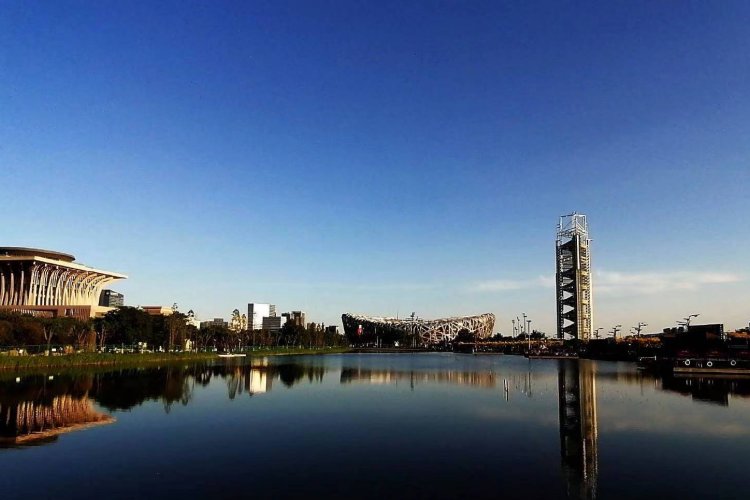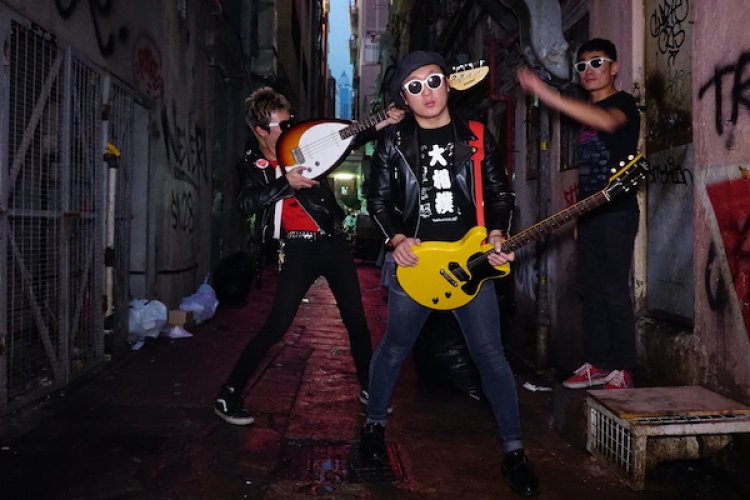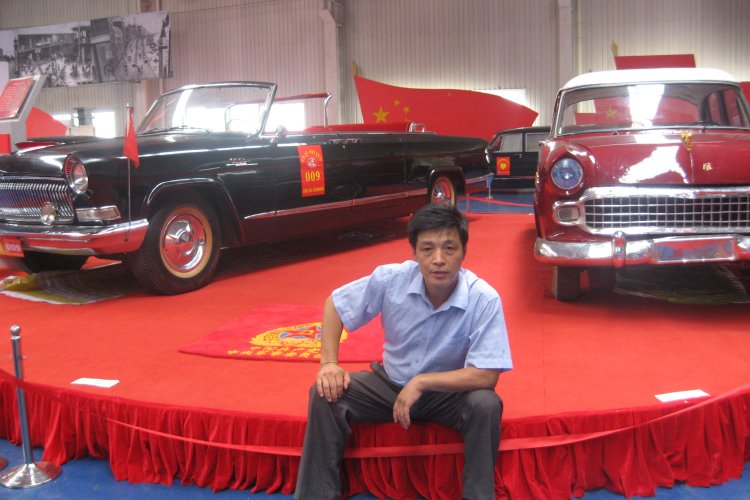New Issue of Urbane - Interview with Chinese Artist Zhang Xiaogang
The tbjblog offers you this small slice taken from the latest issue of Urbane, in which Zhang Xiaogang talks to Alice Xin Liu about why he's one of the most expensive Chinese avant-garde artists out there, and discusses the lengthy road he has traveled. For the full interview, pick up a February issue of Urbane and turn to page 26 or go to the Urbane website http://www.urbanechina.com and download the PDF of the Upfront section.
Zhang was a member of China's '85 New Wave art movement, which is credited for bringing Chinese art to international attention, and sparking a new wave of domestic creativity. Currently, the only place that you can see any of Zhang's work here in Beijing (though it's simply one very early piece) is at the '85 New Wave exhibition currently on show at the Ullens Center for Contemporary Art.
Urbane: How do you account for your international popularity?
Zhang Xiaogang: It's possible people collect my work because there's a market for it. But there are also some who actually love Chinese culture. I think at the moment this category of people is still in the minority. More people are collecting art to invest in it. Many of the people who actually like Chinese art are finding it harder to afford it. This is a very mafan thing…
Urbane: Why do you think your art attracts people?
ZX: Firstly, of course, because I'm talented. [Laughs] And secondly, for a long time I was not allowed to exhibit inside China. From the start I followed the international route, and my luck was good. After I moved to Hong Kong, my art started to become known in the West. Also, since ’93, for over ten years, I haven't stopped participating in exhibitions, so I know more [than other artists]. Another thing – and this is very mysterious, I think – why is one artist preferred over another? I can't figure this out myself. If everyone paints well, why would you choose him or her over someone else? This is very complicated, and probably related to social studies and psychology. It's something that can't be controlled by the artists themselves.
Urbane: Did you realize your Bloodline series would be so popular?
ZX: If I knew I would've painted a few more, and I wouldn't have sold them. I would have kept them! [Laughs]
Urbane: Do you think today’s artists are struggling to match your success?
ZX: Currently I don't think any artist in China finds it hard to sell their art! But I don't think there has been clarification as to what is really good, what is average, and what is actually bad. Chinese art is in a confused state, and this is a condition particular to China. I think it's very interesting.
Urbane: You were one of the key members of the Chinese New Wave in 1985. Can you describe that moment?
ZX: ’85 was a time of innocence, and youth like us, 24 or 25 years old at the time, had a very strong intellectual thirst. But our works and ideas weren't accepted by society. Our lifestyles were very alternative. Sometimes what we were doing didn't feel artistic – it felt almost like we were participating in a campaign or a movement. But that was in the later stages. The impression that the early stages of ’85 gives me is a group of young people wanting to go down the “other” path, and this is purely to do with the opening up [under Deng Xiaoping] and liberation [of thought] that occurred in this country. They decided to take another path and they didn't have anything – no money, nothing – but they carried on. They believed in a different kind of culture; it was very naïve. What was I doing? I was assigned by the state to a song and dance troupe in Kunming, where I designed stage sets. 1985 was a very interesting time; it deserves a longer discussion.
Urbane: You once spoke about the importance of separating art from society. Do you still think isolation is essential to art today?
ZX: You can't separate yourself totally. I think in this era, artists have to maintain their “whole” selves, which is becoming increasingly difficult. I think this is a time when you have to start looking for loneliness. It's too renao (chaotic) nowadays. If you wanted to, you could have dinner and drinks with someone different every day. If you wanted to, you could spend all your time in the media. But as an artist, the most important feeling is loneliness. So when I say artists need to isolate themselves from society this is what I mean: You have to look for that feeling of loneliness again. Only this way can you have something that is purely your own.
Urbane: Do you think that artists in China and the West share some of the same tendencies – drinking, loneliness, morbidity?
ZX: Not necessarily. My art is mainly about my experiences – experiences directly related to my life and my history. It's possible that someone else's history is completely different, but that their works are just as good – there isn't only one path. I wanted to clarify one thing though, which is, what is the "self"? I think the self is innate, and how you develop it is crucial if you are to reach some sort of self-knowledge. You find out over the years what kind of person you are. You might find that something isn't right, so you make a turn. I have the belief that a person and his art should have one direction; your work should be a synonym for your person – the two shouldn't be separate. Art isn't a science or a job; it's alive. Good art is born from knowing yourself deeply: Your art cannot hide how much you have discovered about yourself. A very inspired British painter once said that you needed to have the right ideas as well as the right way of expressing it. If you saw a work that had both, then you'd be touched.
Urbane: What's your plan for 2008?
ZX: I have four solo exhibitions this year, all abroad. Two in Australia, one in Prague. Some of the galleries have requested brand-new works, and one or two will hold retrospectives. I also have some new ideas that I want to realize, and they've been a couple of years in the making. These ideas are related to my Memory and Amnesia projects [which I'm working on now]. Presently it's a matter of changing the way I express them.
Links and Sources:
Saatchi Gallery: Selected Works by Zhang Xiaogang
Artnet: Zhang Xiaogang






